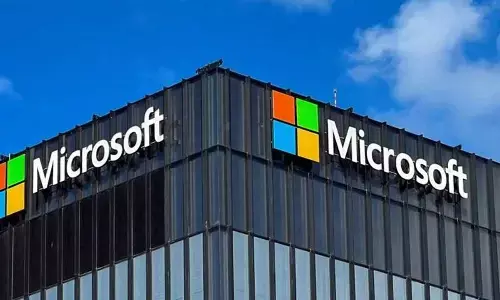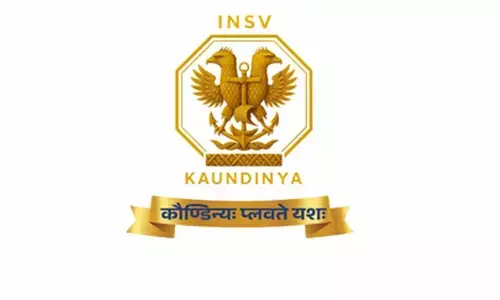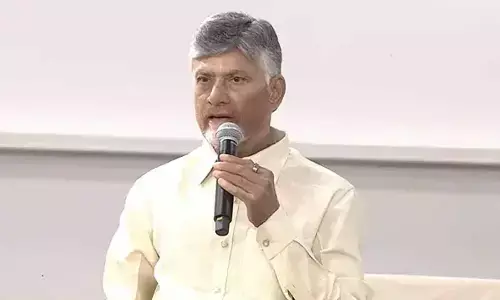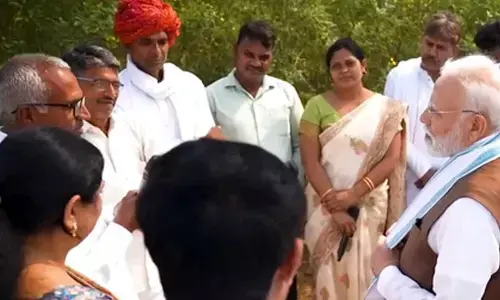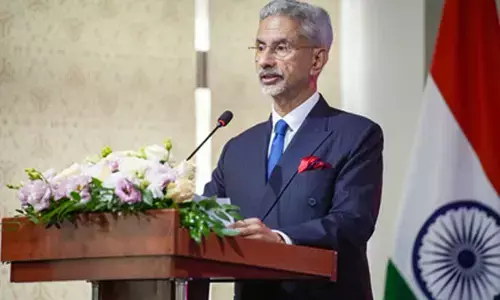Assuaging investors
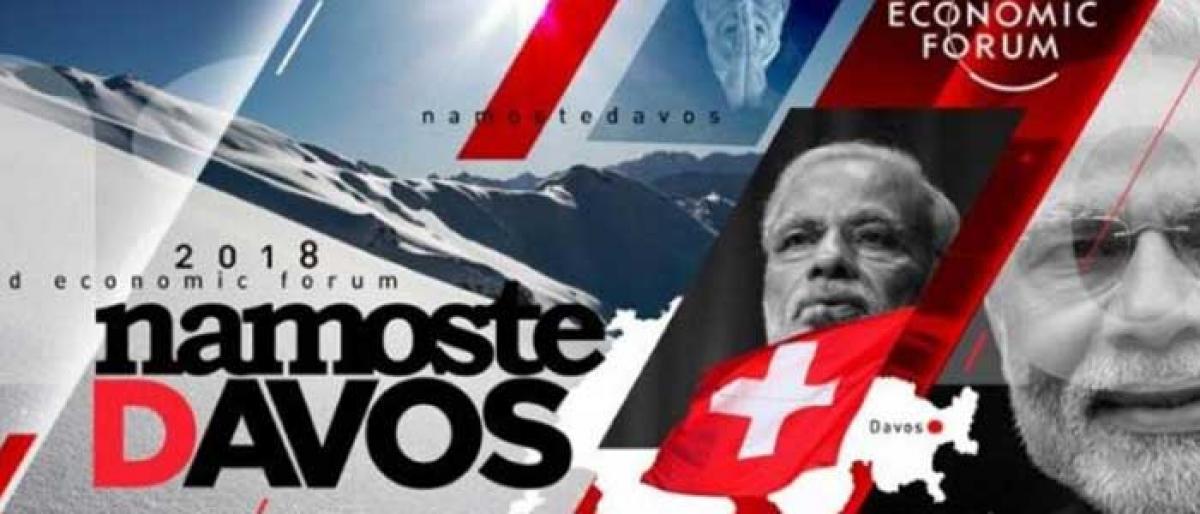
Ahead of his debut at the World Economic Forum (WEF) that got underway in Davos, a picturesque town in Swiss Alps, Prime Minister Narendra Modi made an audacious statement.
Ahead of his debut at the World Economic Forum (WEF) that got underway in Davos, a picturesque town in Swiss Alps, Prime Minister Narendra Modi made an audacious statement. It will be more appropriate to call it a politically-correct uttering. In an interview to an English news channel – his maiden one after becoming PM in 2014, Modi sought to make it abundantly clear that upcoming Union Budget 2018 – the last full-fledged budget before the country goes to General Elections in early 2019 – would not carry any populist undertones.
He went a step further and maintained that common man never expected freebies and sops from governments. Though he didn’t say so explicitly that Budget preparation was the exclusive preserve of Finance Minister, he hinted that fiscal deficit would not breach targets and other macroeconomic indicators would be under control.
But, signals from the ground tell a different story. Fiscal deficit target for the current financial crossed the full-year target in November last year itself. At the end of November, fiscal deficit was 112 per cent of the annual target for the fiscal. During the same period last fiscal, it was 85.8 per cent. That means fiscal deficit is already at worrying levels.
It’s the same with inflation which rose to a 17-month high of 5.21 per cent in December. As if these bad omens are not enough, crude oil prices crossed $70 a barrel. As India depends on oil imports to meet 70 per cent of its fuel consumption needs, higher oil prices will throw a spanner in the central government’s efforts to contain fiscal deficit. India’s GDP growth has also been on a downward movement in FY18. Going by the growth rates the country logged in first two quarters, economy is likely to expand by around 6.5 per cent in FY18 vs 7.1 per cent last fiscal.
In this context, PM’s positive statements on fiscal deficit and economy should be seen from the WEF prospective. Modi doesn’t want to send wrong signals to global investors who have gathered at Davos to dissect global economy. Fiscal deficit and current account deficit are the key economic parameters that not only decide the course of any domestic economy, but also tell a disappointing story to global investors. Perhaps, that’s the reason why Modi has sought to rule out any populist Budget this time.
India needs more foreign direct investment (FDI) for spurring its economic growth. FDI zoomed to a record $60.1 billion in FY17 against $55.6 billion in the previous year. Modi’s positive vibes ahead of his WEF appearance may have been targeted at increasing the foreign direct inflows.
Whatever may be the reason for his pronouncements, it’s very unlikely that India will be able to contain its fiscal deficit within the prescribed limits. Also, his announcement that common man will not fall prey to freebies and sops is far from truth. When money power is clearly visible in elections, sops will indeed play some role in the way people – mostly poor and lower middle class – vote. However, a Prime Minister can’t admit it openly.










